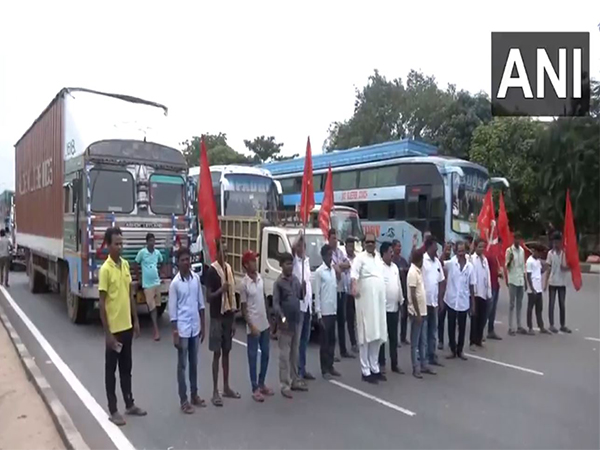Nationwide Bharat Bandh Hits Public Services, Sparks Trade Union Protests
The 'Bharat Bandh', organized by ten central trade unions, disrupted public transportation and services across India. The protest, aimed at opposing government economic reforms, led to roadblocks and train service interruptions in multiple states. Trade unions accused the government of undermining workers' rights through its policies.

- Country:
- India
Public transportation faced severe disruptions nationwide on Wednesday as the 'Bharat Bandh' protests, driven by ten central trade unions, gained momentum. In Odisha, the Khordha District unit of the Centre of Indian Trade Unions (CITU) obstructed the national highway at Bhubaneswar to bolster the strike's impact.
In Kerala's Kottayam, commercial activities came to a standstill as shops and malls shuttered in solidarity with the strike called by the trade unions. Meanwhile, in Bihar's Jehanabad, the students' wing of the Biju Janata Dal (RJD) disrupted train services by blocking the tracks, aligning with the nationwide strike.
West Bengal witnessed major disruptions in train services, especially around Jadavpur, due to protestors occupying railway tracks. The state-run North Bengal State Transport Corporation (NBSTC) equipped its bus drivers with helmets for safety amidst the heated protest atmosphere.
The West Bengal public transport authority distributed helmets to bus drivers operating on routes, excluding the Darjeeling Hills area. Leftist trade unions have organized the shutdown, voicing concerns that the central government's economic measures are detrimental to workers' rights.
Despite significant police presence, Left party union members infiltrated Jadavpur railway station, disrupting services as a mark of protest against the government's corporate-friendly policies. The Jadavpur area braced for possible unrest with a heavy police force ensuring order, even as private and public buses continued operations.
A bus driver remarked on the protests, acknowledging the point of the strike but emphasizing the need to work despite potential risks, hence the use of helmets. Chennai saw bus services persist despite the call for a shutdown.
The Bharat Bandh impacted sectors like state-run public transport, government departments, banking, insurance, postal services, coal mining, and industrial production, with unions accusing the government of diluting workers' rights through reforms.
CITU General Secretary Tapan Kumar Sen, referring to a 17-point demand charter, called for the withdrawal of labor laws enacted in 2020, claiming they undermine the nation's trade union structure and democracy. The call for a nationwide strike received backing from entities like Congress (INTUC), AITUC, HMS, CITU, and others.
The trade union forum reproached the government for neglecting the annual labor conference for a decade and opposed the four labor codes, arguing they diminish collective bargaining powers while favoring employers under the guise of 'ease of doing business'. They challenged the government's economic stances, linking them to increased unemployment, inflation, and weakened social sectors.
Through Bharat Bandh, the unions demand staffing for sanctioned positions and enhancements in MNREGA working days and wages.
(With inputs from agencies.)










